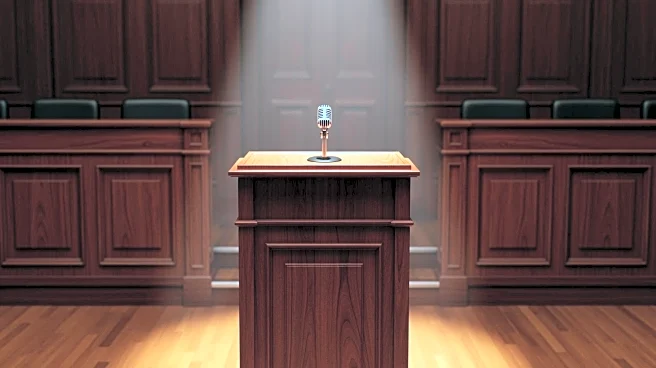What's Happening?
The United Nations General Assembly has urged all nations to observe a truce during the 2026 Winter Olympics in Italy, emphasizing the event as a platform for promoting peace, dialogue, tolerance, and
reconciliation. The resolution, adopted by consensus among the 193-member body, recalls the ancient Greek tradition of ekecheiria, or Olympic Truce, which aims to create a peaceful environment for athletes and ensure their safe participation. The resolution was introduced by Italy's Giovanni Malagò, president of the organizing committee for the Winter Olympics. The call for an Olympic Truce was revived in 1993, allowing athletes from war-torn Yugoslavia to participate in the 1992 Summer Games in Barcelona. Despite past refusals by some countries to heed the appeal, the resolution seeks to unite people through sport, as highlighted by International Olympic Committee President Kirsty Coventry.
Why It's Important?
The call for a truce during the Winter Olympics underscores the potential of sports as a unifying force in a world marked by conflict and division. By promoting peace and dialogue, the Olympics offer a rare opportunity for nations to set aside differences and focus on shared human values. The resolution aims to ensure that athletes are judged on their sporting merits rather than political affiliations, advocating for the separation of sport and politics. This initiative could foster international cooperation and understanding, potentially influencing diplomatic relations and reducing tensions during the games. The emphasis on peace and reconciliation aligns with the broader goals of the United Nations to promote global harmony and stability.
What's Next?
As the 2026 Winter Olympics approach, the effectiveness of the UN's call for a truce will be tested. Countries will need to demonstrate their commitment to the resolution by ensuring that athletes can participate without political interference, such as visa denials. The success of the truce could influence future sporting events and diplomatic efforts, encouraging nations to prioritize peace and cooperation. The International Olympic Committee and participating countries will likely continue advocating for the separation of sport and politics, aiming to create an environment where athletes can compete without geopolitical tensions.








